I See London, I See France
Getting beyond Dublin. Onwards to London, Paris, Cardiff, Edinburgh, Copenhagen, Berlin, Oslo. Taking on the mission.
Okay, time to tell the world about Slack. Since Ireland continued to be an island, I took to the skies. From DUB to anywhere in a blur of action. Beating the drum and finding new customers and meeting curious prospects across EMEA, I got to know the airports of Europe.
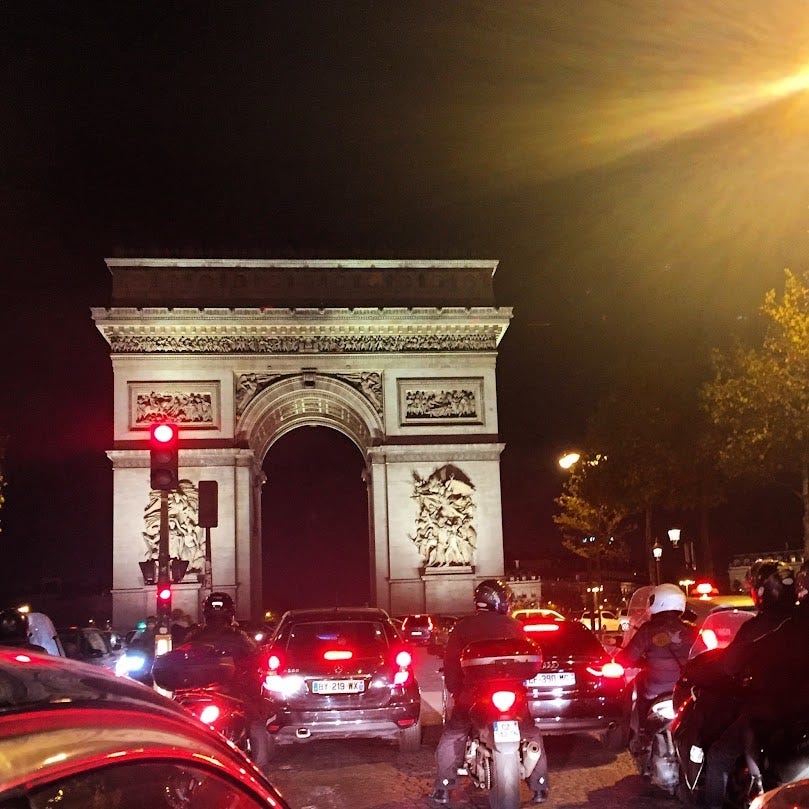
That travel meant conferences and meetings and events and nights in hotels. Not exactly my favourite, but necessary. The Slack name and our marketing muscles created opportunities to tell our story. Our product adoption in pockets of technology-forward organizations created chances to close new deals, and then expand existing deals into broader adoption. In short, we had to go. That was the mission.
And people wanted to talk with us, mostly. We still encountered lots of skepticism overall, but we started to see through that resistance to find the places we could have an impact. I met with the nordic media house Schibsted and they wanted to upgrade to 1,500 people. Barclay’s had a digital division using Slack that wanted to expand. Spotify was growing from its fledgling Stockholm roots and Slack acted as their global digital communication hub.
We started to learn how Europe wasn’t really a market, roughly the size of the US. It was instead about 20+ smaller markets, each with its own nuances and wrinkles and restrictions. Each also with its own digital leaders and progressive organizations.
So we started to carve off markets to focus on. At the top of the list we found the UK and Ireland, Nordics in Sweden, Norway and Denmark, maybe the French or Germans, if they fit into tech-led industries. But beyond that? Not a focus for us at the time. If customers came to us we’d certainly be happy to help them. But we stopped thinking broadly of targeting all markets, and we started to be selective.
Onwards to London
First up: jolly old England. We opened a temporary office at the WeWork Spitalfields in London. Our Customer Success expert Rav occupied its glass, fishbowl space most days, and it promised to house future boots on the ground in the world’s second largest software market. We got settled and quickly hired Victoria as our first dedicated Account Executive and second Sales team member in London.

I learned the flight from Dublin to London was the busiest single route in the world. I ended up flying it most weeks for a few months, then every second week as we got up and running. Did I want to fly into Heathrow or London City airport? Depending on the traffic, the meetings, the time of day, the weather, that question and many other travel optimizations started to occupy a consistent corner of my mind.
My London days got divvied up between customer demands and internal needs for hiring, managing, training. We visited Sky News and learned they had integrated Slack into their live news-gathering and broadcasting workflows. We visited the online grocer Ocado to see how Slack helped them pick and pack groceries across their dozens of warehouse before the crates went out for delivery on their fleet of vans. I dug deep into their specific examples and felt amazed how all these folks had taken Slack and made it work for them in ways we could have never imagined. Once more, the value of talking with customers (and mostly listening) shone brightly.
On the hiring front, progress was clear as a spotted dick. Victoria arrived perfectly prepared to hit the ground running and act as a culture carrier in the fledgling London office. Excellent. Then things clotted up.
I interviewed a candidate for a Sales role who basically admitted to fraud (pumping up fictional user numbers just prior to a software license renewal) when I asked him if he’d ever had to lie at work. That put a stop to the interview. Competition for top sales people proved challenging and we had to slog through a raft of highly variable candidates to find winners.
Cardiff and The Future
We started to see some progress with customers. After a day of work in London I took the train to Cardiff to meet with a team at General Electric (GE) responsible for their internal tools. They were already using Slack and wanted our help to position it as part of their overall approach to work.
In introductions at our first meeting, the GE folks mentioned their respective tenures at the company: 16 years, 22 year, 26 years. GE was founded in 1892 by Thomas Edison. Slack had a commercial product in market for less than 30 months at the time. We came from different worlds yet met in a good place.
The GE folks wanted to drive change. They shared with me a slide demonstrating their internal tools strategy. A table listed Slack along with Google Apps, Confluence and SharePoint. Slack’s label? The Future. Could we ask for much more at this stage? Capital F future. Our positioning seemed to be working.
The meetings fell during the 6 Nations Rugby tournament, the Cardiff shop windows festooned with blazing red jerseys supporting the Welsh national team. I bought a dragon coffee mug for home in Dublin, a rugby jersey for my brother back in Canada and tried to pronounce Cymru.
TechCracker at Stirling Castle
I flew to Edinburgh with my family and we drove to St. Andrews for a conference called TechCracker put on by one of Slack’s funders, Horizon Ventures. We arrived a day early and spent our free time walking St. Andrews: the picturesque streets, studied academic vibe since 1412, the Old Course where golf originated, the cafe where Will and Kate went on their first date.
At the conference, the Horizon Ventures portfolio companies set up booths to demo their products. Many are software products and I’m familiar with their demo process — questions that lead to the problem, workflows that lead to their solution. Others are much more exotic and research-intensive tech like cultivated meats, fermented milk proteins, virtual reality. I ate a cheeseburger of grown, ground ‘meat’ with grown, cultured ‘cheese’. They tasted fine, though different. Pretty much all the companies already used Slack so my role ended up being focused on answering product questions and helping them improve their use with tips and easter eggs.
Scottish First Minister Nicola Sturgeon opened our first morning of the program with a welcome. She talked about Scottish innovation and invention and the Scots openness to the world of technology. Her handlers snapped some photos and hustled her in and then quickly out again.
In our small talk backstage after she’d spoken she asked me how I was enjoying Scotland. I told her it was my first time visiting, and as soon as I landed I could see how so many Scots felt very at home in Canada. “It feels very familiar.”
“Do you have family from round here?”
“My grandparents sailed from Dundee to Canada in 1905.”
“Well, we have a lot of tourists that come to Scotland looking for their roots. I’m not sure they’re always pleased to find them.”
And with that she gave me a look as if to say, “I’m off,” nodded and she was gone.
That evening the conference organizers took us by coach to Stirling Castle, which they had rented for dinner. We dressed for a James Bond theme. A pipe band welcomed us as we disembarked. We were shepherded through the empty castle and into a Great Hall for dinner at long tables under purple lights.
At a quiet moment I felt a bit in need a recharge and headed out for a walk through the castle. To my surprise, I could keep walking, everything in the castle open and accessible. I self guided a tour through the halls and rooms that saw 600,000 visitors a year. The castle was resplendent with heraldry and unicorns and plaques retelling stories. I lingered in the royal bedchamber and stood where Mary, Queen of Scots was crowned in 1542. Beyond the walls I read about where King Robert the Bruce won the Battle of Bannockburn against the English and inspired the unofficial Scottish national anthem, Flower of Scotland.
The Techcracker conference carried on. I rejoined the group and tried to play my role as Slack ambassador as well as I could in my rented tuxedo.
I flew to Copenhagen for another conference. We met with Maersk and learned how they customized Slack to track all their ships sailing the globe and receive notifications of route changes, weather alerts, news bulletins and more in one place. They called it their digital control tower and told us they used Slack more than any other software tool. Yet they had security concerns. Could we dig in deeper? Certainly.
I flew to Paris to present to Atelier BNP Paribas, their innovation organization, the offices housed in a magnificent building. We entered and passed through layers of security before descending through ornate vaulted ceilings to bland beige meeting rooms that could have been the basement of any global bank.
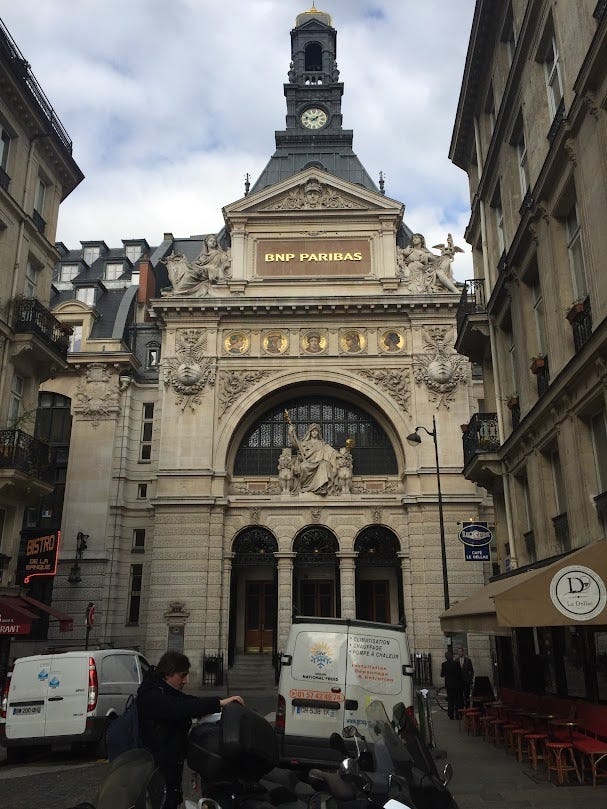
I tried to keep learning new things at each stop. The Atelier BNP Paribas meeting stands out because its the clearest example of the clear allure and danger of Slack’s positioning as a catalyst for innovation in large organizations. We met with their innovation group. Our message resonated with them and they were keen. Great! That was the clear allure.
But then, a downside of being a catalyst for innovation emerged. As we got deeper into the deal we realized being a project of the innovation team meant being considered a toy product, not ready for enterprise adoption, potentially just a trifle really, a passing fad. We got some traction but it proved to be down a dead end road. Every large organization had an innovation division or lab keen on Slack yet only sometimes taken seriously in the larger organization.
Yes, Sure, Right, But
On the business front, through all of these trips I found an overriding theme emerged for Slack embodied by the phrase, “Yes, sure, right, but.” It was partially skepticism about a US tech company, and partially slowness to adopt new technologies and partially the lack of an overarching narrative of change and progress inside most organizations. They were curious and adrift. We kept hearing that our vision of the future was better than their vision, and their present, yet organizations still clung to the inertia of their past decisions.
On the one hand, I appreciated that the folks I met had pride in their traditions and a reticence to move too quickly to adopt anything that seemed to be growing so quickly. As if saying, “this thing called Slack has become something so fast, it certainly also become nothing just as fast. We will go slow and see what works for us.”
On the other hand, there was concurrently a deep insecurity about missing out, about being slow, about being left behind. Much like a younger sibling, they were worried about missing out. They felt they’d missed out before. They wanted to play too. They could keep up. They had their own software success stories and tech hubs and research universities and business successes.
This contradiction of, “Yes, sure, right, but.” meant we did well with our business expansion in EMEA. But we didn’t do as well as our teams in North America. We grew, but not as fast. We closed new customers, but not as many or as large as in the US. It took time to do the thing and to do the thing for the first time.
I’ve mentioned before how the US has a huge inherent advantage as a location to start a software business: a single currency, a single language for business, a huge number of customers, tech hubs and a entrepreneurial culture and funding structure to continually mint out new startups. But the largest of all the advantages the US enjoys is its culture of openness and optimism. Failure can be a badge of pride, not shame.
When presented with what we were selling at Slack — a vision of how to work in the future — the default US response? Cool, yes. We want that. It’ll be great.
The default EMEA response? Yes, sure, right, but. It was the but that stood out, that slowed or stopped conversations, and we had lots of work to do to navigate beyond it.
Taking on the Mission
I flew to Oslo for a jam packed 2-day itinerary, followed by some personal time. As I mentioned earlier, as I traveled more I started to combine some of my trips with personal time so my family could join me.
During the days and many of the evenings, they did their own thing as I worked. Then we usually added on a few days of family time in a destination before returning to Dublin to resume normal life.
In Edinburgh we found a fun fair and my son rode a burlap carpet down the slide of a helter skelter like he’d seen in Peppa Pig cartoons. We rented bikes and rode the paths of Copenhagen, discovering their wonderful playgrounds built into parks and forests. We lazed on the spring grass of Oslo’s Vigeland Park with a picnic and marvelled at the granite sculptures of humans in every stage of life.
The travel inherent in the mission proved to be both exciting and exhausting. New places, new people, new experience all kept me going. Learning kept me challenged. Raised in Canada with stories of explorers and the Jesuit Black Robes I felt a sense of exploration to my own experience, a sense of going out into the world to prosthelytize a new message. I don’t want to overstate this feeling, but arriving in a new place I definitely felt I was representing Slack. And there was a duty to show up and represent well and pursue the mission.
And it took a toll. I don’t expect anyone to feel sorry for me when reading this. I was incredibly lucky every day to get to work at Slack. Every day I felt a ton of energy getting to do what I got to do.
So I say that it took a toll as a cautionary note to anyone else who might be considering or supporting someone on the same path. It can be hard and it can require sacrifice and some self preservation tactics. A social scientists would call it a greedy job — one that soaks up as much of the time and energy it can from a family’s life. And it wasn’t a surprise.
When we decided to leave to Dublin we certainly knew we would be making sacrifices. In this period of intensive travel, we had to imperfectly deal with those sacrifices while trying to protect the most important things: our time together, our connections to each other, the primacy of our relationships as a family.
So when I say my wife is the brains of the operation, I’m not being facetious or glib. That mission I had to take on? It wasn’t just my mission, it was our mission, and I couldn’t have done it without her.
Up next: Gentrifying Slack with Radio London — Moving up in the old world. Coming to you live. Making my mistakes. Updating my priors.



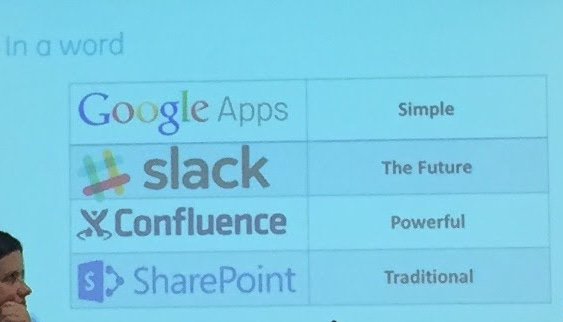


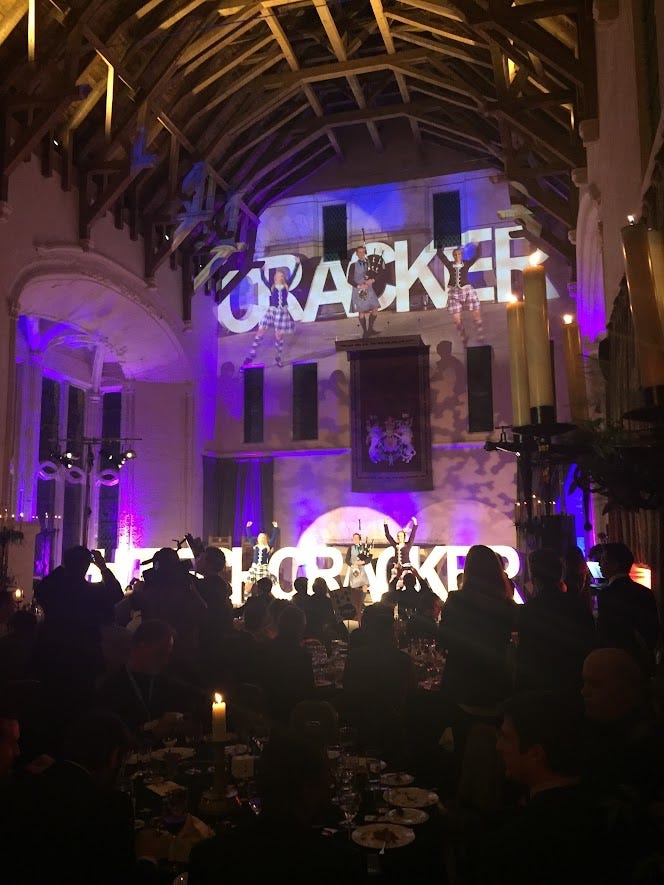
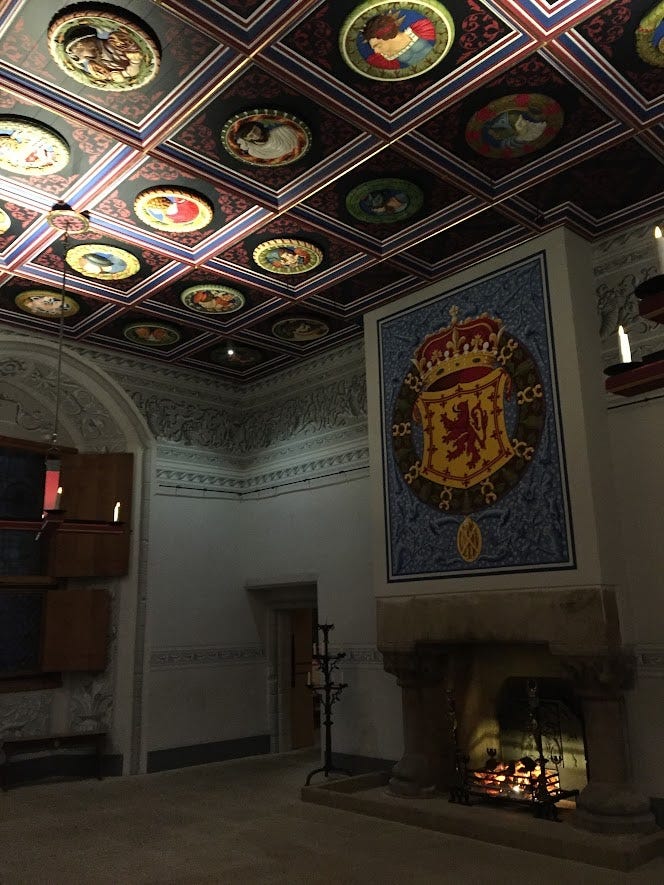
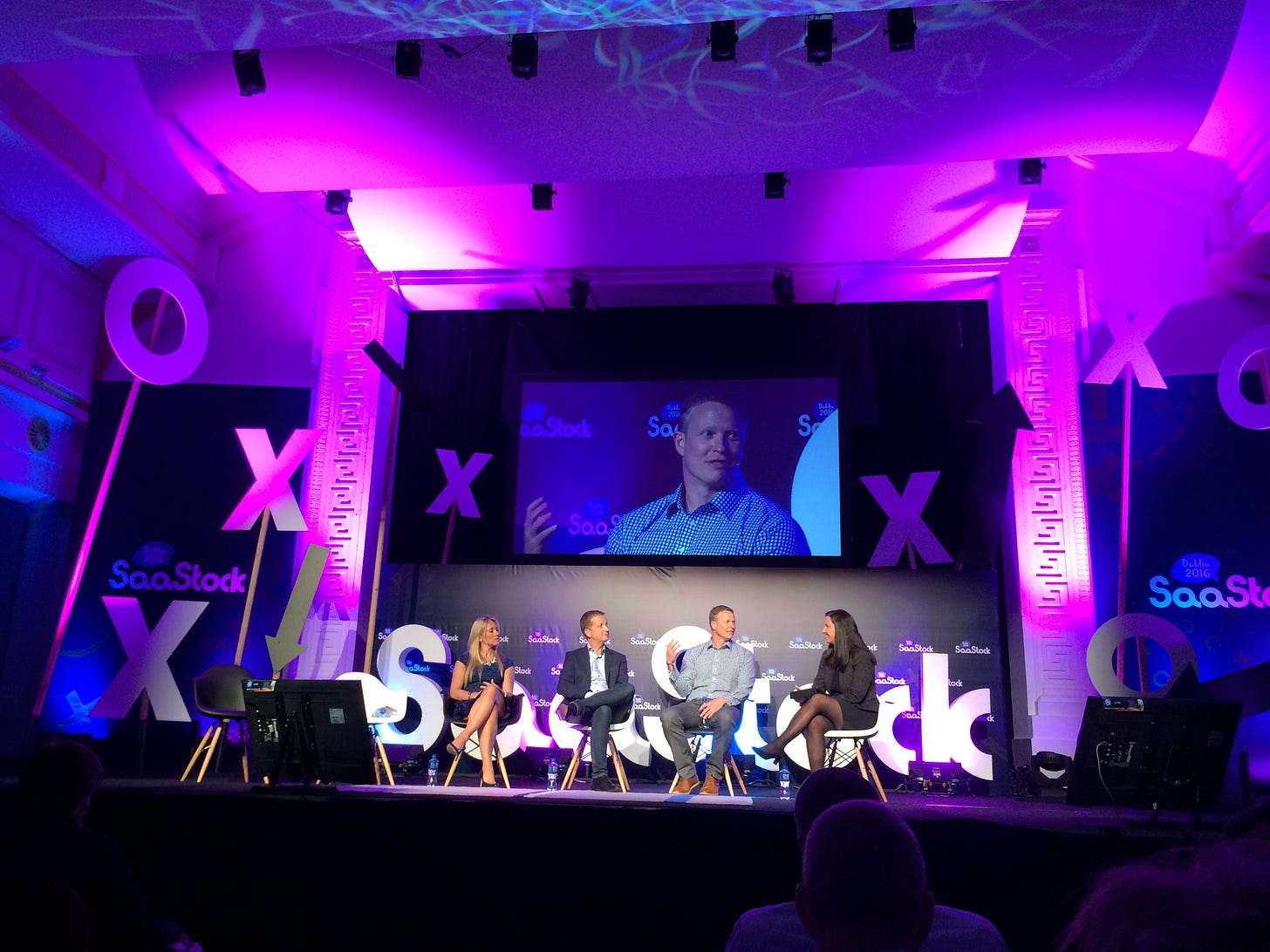
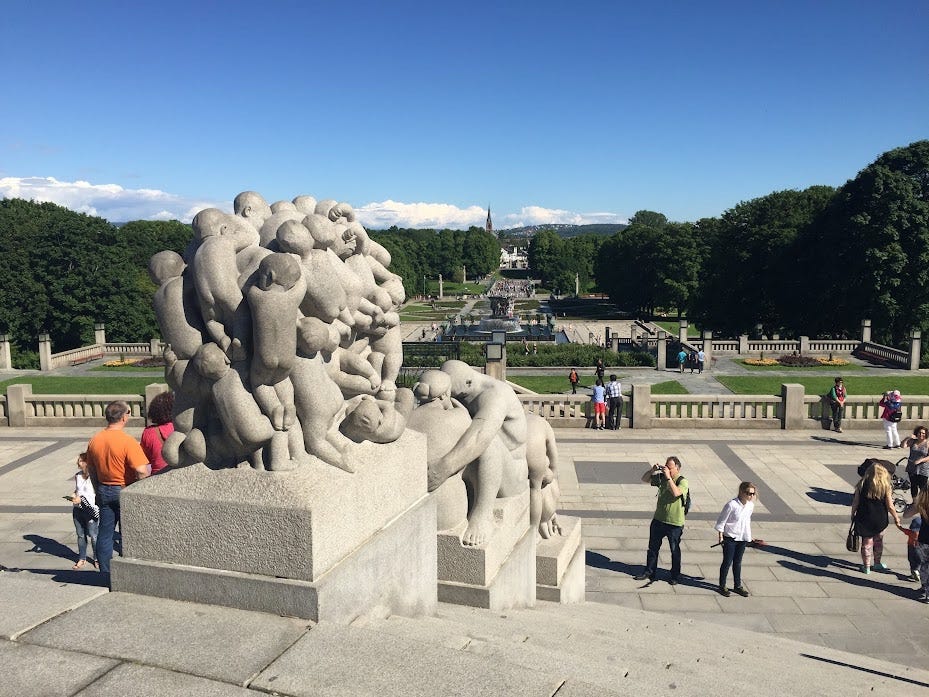

I often observe that packed travel schedules and days of meetings sound pretty terrible while at home, but once the process starts, it quickly becomes a new lifestyle that takes on a sense of momentum. It can’t last forever, thankfully, but we are more adaptive than we think.
I remember in a previous chapter when we had some comments from your wife. Now might be a good time for some more! Esp around a the term “greedy job” :)